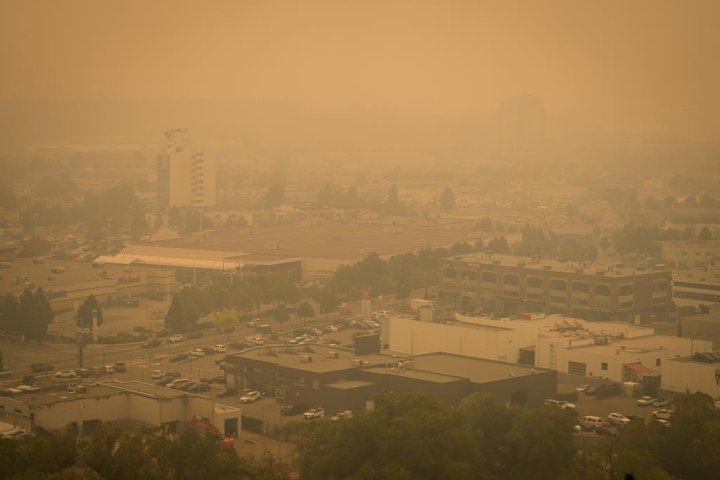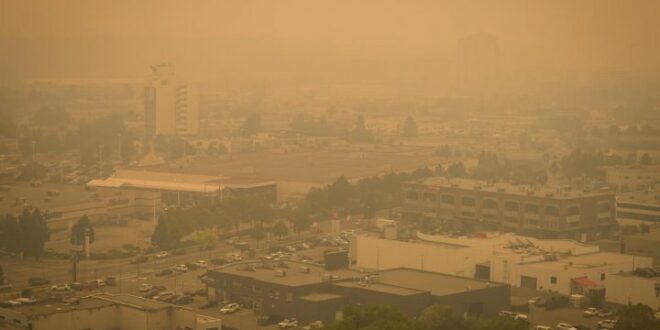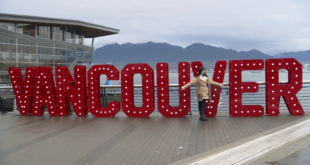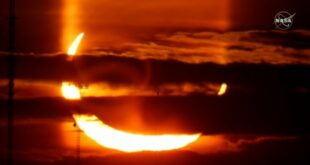
As British Columbia grapples with its worst wildfire season on record, there are new concerns about how the fires could affect a tourism industry still recovering from the COVID-19 pandemic.
B.C. has declared a provincial state of emergency, which includes restrictions on travel to the province’s Central Interior and southeast.
That move has put the brakes on travel plans for thousands of British Columbians, along with out of province and international visitors like Sharon Hargroves, who had planned to take the Rocky Mountaineer on Sept. 1.
“We’re rather devastated I’m afraid,” she said.
“My heart goes out to the people — our holiday is second to their livelihoods and their lives — but yes its a bit disappointing, it’s a once in a lifetime holiday and its not to be by the looks of things.”
News of the devastating wildfires has made international headlines, and with fire seasons getting longer and fires getting more intense, it raises questions about the province’s reputation as an outdoor recreation destination.
“Our reputation as an outdoor adventure natural wildlife area is very important, and is certainly the most important brand we have in the international market,” said Ellen Walker-Matthews, president and CEO of Thompson Okanagan Tourism Association.
Walker-Matthews said tourism associations were working with operators and provincial tourism agency Destination BC to respond to the fire crisis, while protecting the industry.
That includes real-time communication with tour operators to make adjustments for international visitors such as shortened stays in some parts of the province or shifting tours elsewhere in B.C.
It also includes working with operators about more flexible cancellation and refund policies.
“It’s not that set in stone anymore, people are trying to make sure they do save their business’ reputation by doing the most flexible things they can with their visitors,” she said.
“When it’s time to come back we really hope they’ll come back and support us through the fall and winter. These are small business operators, a lot of times this is their entire livelihood, they really depend on these last three weeks of august that they’ve now lost.”
British Columbia’s twisting highways through mountains and valleys are a popular summer destination for motorcycle tourists from across North America, but that too may be changing according to Renee Charbonneau, executive director of the Canadian Motorcycle Tourism Association.
Charbonneau said tour operators have had some luck on Vancouver Island and for parts of July, but that when the smoke rolls in it becomes a major problem.
“Air quality, especially when you’re on a motorcycle, is extremely important. You don’t want to be driving all that toxic air into your lungs if you don’t have to,” she said.
“The wildfires have impacted touring in a big way. People have been basically having to adjust their schedules all summer long.”
With travel restrictions in place for fire-affected areas, the province is urging the tourism industry — and Airbnb hosts — to be flexible with guests.
“We’re really asking them to take the same approach that we’re asking commercial hotels to take, which is to have understanding about the fact that we’re asking people not to travel to the area, not to be tourists in disaster areas in the province, and to be flexible around refunds,” B.C. Premier David Eby said Monday.
“We’re calling on the company to be supportive of that. And and certainly people who are hosting to be supportive of that, that’s our expectation.”
Eby said the province was also looking at support for the tourism sector, but noted that hotels throughout the interior are fully booked with firefighters, health-care workers and other emergency crews deployed to the fire zone.
Hargroves said she’s crossing her fingers the situation improves and that trip to the Rocky Mountains may yet be a reality.
And she said while the reality of B.C.’s worsening summer wildfire seasons may change the way visitors like her see Canada, it likely won’t keep them away.
“I think people will be a lot more careful about when. I think people are starting to question long-haul flights anyway and if this is a sight we shouldn’t be doing as much.
[ad_2]You can read more of the news on source
 Travelsmart
Travelsmart



